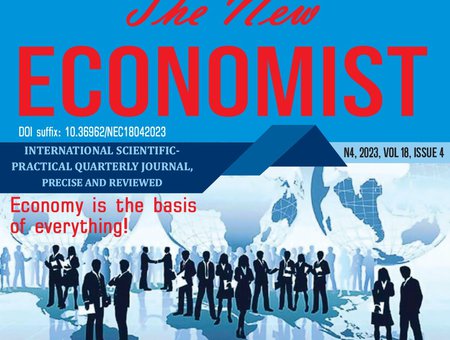REFERENCES:
- Extended Producer Responsibility and the Impact of Online Sales, OECD 2018, https://www.oecd.org/environment/waste/policy-highlights-extended-producer-responsibility-and-the-impact-of-online-sales .pdf
- Poukli, K., 2020, March. Concretizing the role of extended producer responsibility in European Union waste law and policy through the lens of the circular economy, 4. In: ERA Forum, vol. 20, pp. 491–508. Springer Berlin Heidelberg, https://doi.org/10.1007/s12027-020-00596-9
- Wang, Zh., Duan, Y., & Huo, J. (2022). The impact of government intervention measures on recycling of waste electrical and electronic equipment in China considering consumer decision. Energy Policy, 160, 112697. https://doi.org/10.1016/j.enpol.2021.112697
- Ahlers, J., Hemkhaus, M., Hibler, S., & Hannak, J., 2021. Analysis of Extended Producer
Responsibility Schemes: Assessing the performance of selected schemes in Europe
and EU countries with a focus on WEEE, waste packaging, and waste batteries.
https://erp-recycling.org/wp-content/uploads/2021/07/adelphi_study_Analysis_of_recycling_Schemes_July_2021.pdf
- Liu, T., Cao, J., Wu, Y., Weng, Z., Senthil, R.A., Yu, L., 2021. Exploring influencing
factors of WEEE social recycling behavior: A Chinese perspective. J. Cleaner Prod.
312, 127829 https://doi.org/10.1016/J.JCLmgwO.2021.127829.
- Obligations of producers/importers of products subject to the extended obligation of the producer, Environmental Information and Education Center of LSI, April 18, 2022. https://eiec.gov.ge/Ge/News/details/1871
- Law of Georgia "Waste Management Code", Article 9. https://matsne.gov.ge/ka/document/download/2676416/11/ge/pdf
- "On the approval of the technical regulations for the management of waste oils" Decree of the Ministry of Georgia #327, May 25, 2020. https://matsne.gov.ge/document/view/4877971?publication=0
- "On Approval of the Technical Regulations on the Management of Batteries and Accumulators Waste" Decree of the Ministry of Georgia #324, May 25, 2020. https://matsne.gov.ge/document/view/4877915?publication=0
- "On the approval of the technical regulation on tire waste management" Decree of the Ministry of Georgia #325, May 25, 2020. https://matsne.gov.ge/document/view/4877932?publication=0
- "Regarding the approval of the technical regulation on the management of waste of electrical and electronic devices" Decree of the Ministry of Georgia #326, May 25, 2020. https://matsne.gov.ge/document/view/4877952?publication=0
- "Georgian Waste Management 2016-2030 National Strategy and Waste
On the approval of the national action plan for management" Georgia Drunkenness Resolution #160, April 1, 2016.
- Brown A., Laubinger F. New Aspects of MSW: Extending producer responsibility to additional product groups,
and challenges throughout the product lifecycle, OECD Environment Directorate, 2023. https://www.oecd-ilibrary.org/docserver/cfdc1bdc-en.pdf?expires=1702605603&id=id&accname=guest&checksum=2753CA0C9B047D5978ED891BF0E193AA
- OECD (2015), Creating Incentives for Greener Products: A Policy Manual for Eastern Partnership Countries, OECD Green Growth Studies, OECD Publishing, Paris. http://dx.doi.org/10.1787/9789264244542-en



